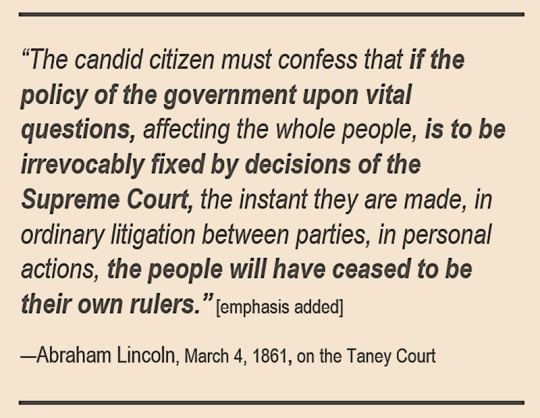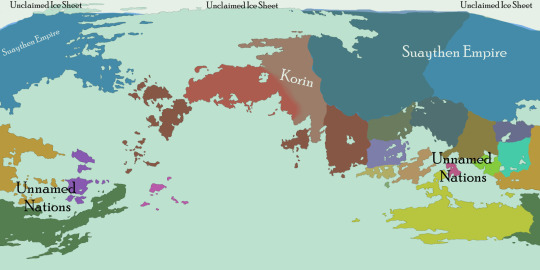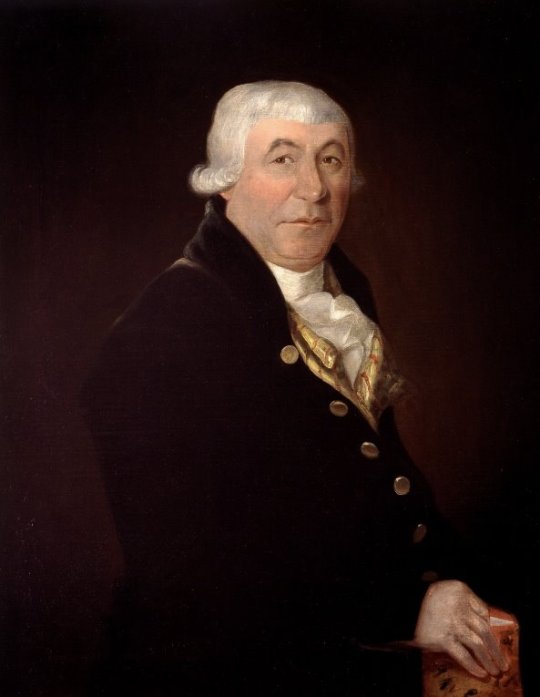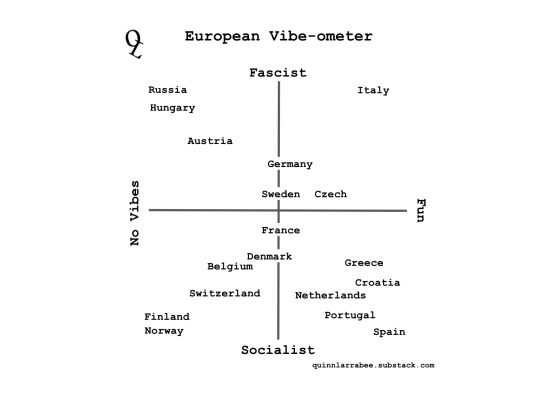#Assembly elections gifts
Text
Last 5 days to apply KCR's One Lakh BC Bandhu for every Household in Telangana!

తెలంగాణ ప్రభుత్వం ఇస్తున్న రూ.లక్ష ఆర్థిక సాయం అర్హతా నిబంధనలు
తెలంగాణలో వెనుకబడిన వర్గాల్లోని కులవృత్తులు, చేతివృత్తిదారులకు రాష్ట్ర ప్రభుత్వం అందించనున్న రూ.లక్ష ఆర్థిక సాయానికి సంబంధించిన ప్రక్రియ షురూ అయింది. దీనికి సంబంధించిన విధివిధానాలను రూపొందిస్తూ ప్రభుత్వం మంగళవారం ఉత్తర్వులు జారీ చేసింది. ఆన్లైన్లో దరఖాస్తులు స్వీకరించడానికి వీలుగా అధికారులు ప్రత్యేక వెబ్సైట్ను రూపొందించారు. గత కేబినేట్ సమావేశంలో తీసుకున్న నిర్ణయం మేరకు బీసీ సంక్షేమ శాఖ మంత్రి గంగుల కమలాకర్ అధ్యక్షతన ఏర్పాటైన కేబినెట్ సబ్ కమిటీ వెనుకబడిన వర్గాల కులవృత్తిదారులకు లక్ష రూపాయల ఆర్థిక సహాయం అందించాలని నిర్ణయించింది.
ఈ మేరకు ఆన్లైన్లో...
దరఖాస్తు చేసుకునే వెబ్సైట్ను మంత్రి గంగుల మంగళవారం సచివాలయంలో లాంఛనంగా ప్రారంభించారు. మంగళవారం నుంచి ఈనెల 20 వరకు
అర్హులైన వారు దరఖాస్తు చేసుకోవలసి ఉంటుంది. ఫొటో, ఆధార్, కుల ధ్రువీకరణ పత్రం తదితర వివరాలతో సరళంగా దరఖాస్తు ఫారాన్ని రూపొందించినట్లు మంత్రి తెలిపారు. వీటిని ఆయా జిల్లాల యంత్రాంగం పరిశీలించి లబ్ధిదారులను ఎంపిక చేస్తుందన్నారు.
అర్హతా నిబంధనలు...
1. ఎంచుకున్న వృత్తిలో రాణించడానికి వీలుగా ఒక్కో లబ్ధిదారుడికి రూ.లక్ష ఆర్థిక సాయాన్ని అందిస్తారు.
2.ఒక కుటుంబంలో ఒక్కరికి మాత్రమే ఈ పథకం వర్తిస్తుంది.
3 2023 జూన్ 2 నాటికి 18-55 ఏళ్ల మధ్య వయస్కులు మాత్రమే అర్హులు.
4. లబ్ధిదారుడి వార్షిక ఆదాయం గరిష్ఠంగా గ్రామాల్లో రూ.1.50 లక్షలు, పట్టణాల్లో రూ.2 లక్షలు మించకూడదు.
5, గత అయిదేళ్లలో ఇతర ప్రభుత్వ సంక్షేమ పథకాల ద్వారా రూ.50 వేలు అంతకంటే ఎక్కువ మొత్తాన్ని ఇప్పటికే పొందిన లబ్ధిదారులు ఈ పథకానికి దరఖాస్తు చేసుకోవడానికి అనర్హులు.
7. మండల స్థాయిల్లో ఎంపీడీఓలు, పురపాలికల్లో మున్సిపల్ కమిషనర్లు ఈనెల 20 నుంచి 26 వరకు దరఖాస్తులను పరిశీలించాలి.
8. జిల్లా కలెక్టర్ నేతృత్వంలోని కమిటీ జిల్లాస్థాయిలో ఎంపిక పూర్తి చేయాలి. దీనికి సంబంధించిన అనుమతులను ఈనెల 27 నుంచి జులై 4 వరకు సంబంధిత జిల్లా ఇన్ఛార్జి మంత్రుల ద్వారా పొందాలి.
9. లబ్ధిదారులను దశల వారీగా ఎంపిక చేసి, ఆ సమాచారాన్ని గ్రామాలు, మండలాల వారీగా వెబ్సైట్లో పొందుపరుస్తారు.
10. ఎంపికైన లబ్ధిదారులకు ప్రతినెలా 15న ఏక మొత్తంలో రూ.లక్ష ఆర్థిక సాయాన్ని విడుదల చేస్తారు.
11. ఏ వస్తువులు, పరికరాలు కొనాలనేది లబ్ధిదారుల ఇష్టమే.
12. ఆర్థిక సాయం పొందిన లబ్ధిదారులు నెల రోజుల్లోపు తమ వృత్తిని ప్రారంభించాలి. అవసరమైన సహాయ సహకారాలను అందించేందుకు జిల్లా కలెక్టర్ ఒక ప్రత్యేకాధికారిని నియమించాలి. లబ్ధిదారుడు ప్రారంభించిన వృత్తికి సంబంధించిన ఫొటోలను వెబ్సైట్లో అప్లోడ్ చేయాలి.
Note: Caste Certificate valuable from 2015, Income Certificate valuable from 2021 April 1st officers said.
Source: Govt.
#Telangana BC Bandhu#KCR's One Lakh BC Bandhu#CM KCR#BC Welfare Scheme#Elections#Assembly elections gifts#Tayailalau#ennikala tayailalau#June Scheme
0 notes
Text

This is a gift🎁link so anyone can read the entire NY Times article, even if they don' subscribe to the Times.
Jamelle Bouie does another excellent job of looking at current events through the perspective of American history. In this column, he compares the current Roberts Court with the infamous late 1850s/ early 1860s Taney Court--the Court that lost all credibility with its Dred Scott decision. Below are a few excerpts.
If the chief currency of the Supreme Court is its legitimacy as an institution, then you can say with confidence that its account is as close to empty as it has been for a very long time.
Since the court’s decision in Dobbs v. Jackson Women’s Health Organization nearly two years ago, its general approval with the public has taken a plunge.
[...]
In the latest 538 average, just over 52 percent of Americans disapproved of the Supreme Court, and around 40 percent approved.
[...]
At the risk of sounding a little dramatic, you can draw a useful comparison between the Supreme Court’s current political position and the one it held on the eve of the 1860 presidential election.
[color emphasis added]
[See more below the cut.]
NOTE: Remember that back in the 1850s/1860s the Democrats were the party that supported slavery. The Democrats and Republicans switched positions on civil rights in the late 20th century.
It was not just the ruling itself that drove the ferocious opposition to the [Taney] Supreme Court’s decision in Dred Scott v. Sandford, which overturned the Missouri Compromise and wrote Black Americans out of the national community; it was the political entanglement of the Taney court with the slaveholding interests of the antebellum Democratic Party.
[...]
Five of the justices were appointed by slave owners. At the time of the ruling, four of the justices were slave owners. And the chief justice, Roger Taney, was a strong Democratic partisan who was in close communication with James Buchanan, the incoming Democratic president, in the weeks before he issued the court’s ruling in 1857. Buchanan, in fact, had written to some of the justices urging them to issue a broad and comprehensive ruling that would settle the legal status of all Black Americans.
The Supreme Court, critics of the ruling said, was not trying to faithfully interpret the Constitution as much as it was acting on behalf of the so-called Slave Power, an alleged conspiracy of interests determined to take slavery national. The court, wrote a committee of the New York State Assembly in its report on the Dred Scott decision, was determined to “bring slavery within our borders, against our will, with all its unhallowed, demoralizing and blighted influences.”
The Supreme Court did not have the political legitimacy to issue a ruling as broad and potentially far-reaching as Dred Scott, and the result was to mobilize a large segment of the public against the court. Abraham Lincoln spoke for many in his first inaugural address when he took aim at the pretense of the Taney court to decide for the nation: “The candid citizen must confess that if the policy of the government upon vital questions, affecting the whole people, is to be irrevocably fixed by decisions of the Supreme Court, the instant they are made, in ordinary litigation between parties, in personal actions, the people will have ceased to be their own rulers.”
[color/ emphasis added]
[formatting edited]
#scotus#roberts court#dobbs v. jackson women's health organization#taney court#dred scott#legitimacy of the supreme court#jamelle bouie#the new york times#gift link
103 notes
·
View notes
Text
Jimmie Solidarity
The Kingpin Codfather
The title was given to him to honor his work in establishing the Codlands. Usually, it's shortened just to "Codfather".
Kingpin - Vital to the establishment of the Codlands
Codfather - The title given to him so no ruler would have to know his Coddish name
Ruler of the Codlands
Jimmie is not known for his leader-like qualities, at first glance. He acts casually around his citizens, assisting them with the daily tasks of farming, cooking, playing music, and constructing new areas for people to live and work in. However, the people of the Codlands all agree that he is the one most fit for the job. His willingness to cooperate, yet stubborn tendencies when he truly believes in something, made people start bringing issues to him to fix. And fix them he did! When the Codlands was still young, he helped assemble almost every part of the society. Because of his kindness, mindfulness, and strength in tough times, the people appointed him leader. If they believe someone else is more fit, they will hold an election to vote Jimmie out. However, no elections have taken place. His people love him, and he loves them back.
Age: 810
Birthday: July 11, 3201
This is the estimated date of his birth, as he was alone when he hatched.
Height: 2'7bl (7'9", 236cm)
Gender: Demiboy
Pronouns: he/him
Race: Codfolk, Oceanborne
Codfolk come from the ocean originally, but migrated out of it due to pressure from other species. They now live amphibiously, with much of their territory being on land while also being able to travel through water easily.
Oceanborne are similar to Ancients in that they originate from the oldest known ocean-dwellers. Oceanborne are rare and usually quite powerful (such as Lizzie), but Jimmie got the short end of the stick when it comes to size and grace.
Titles: Solidarity, the Codfather
Solidarity was a name gifted to him when he took power over the Codlands. He received it due to his nature to bring the Codfolk together with other Oceanborne and ocean-dwellers.
Codfather was given to him by his council so that he may use it in foreign situations, such as the World Meetings.

#enuode au#enuode au chref#enuode au chlor#empires au#empires smp#empires s1#jimmy solidarity#solidaritygaming#solidaritygaming fanart
77 notes
·
View notes
Text
I was looking through some old google doc files, and came across this government structure I had created of the Mandalore post-Empire, for an AU I was working on at the time.
Basically Din in this AU had given the darksaber back to Luke when he went to give the gift to Grogu in TBOBF, because he had discovered that it originally was protected by the Jedi and that Vizla had stolen it from the Temple, basically saying “My Ancestor gave it to the Jedi, and now I’m here to do the same”.
I mean, this was actually a really small part of the AU, but it was fun to create, so if anyone is curious here it is:
There are two Governors on the planet
They are chosen with an election, and are voted by only the citizen of age.
Their tenure lasts ten years.
But if the Assembly does not like one or both of them, with a unanimous vote they can take away their position of power.
The Assembly is formed by eighteen elements, and with the Governors they are twenty
Their tenure lasts twenty years.
A lot of the members are from the historical families of Mandalore, or at least the few that survived, but there are also members elected from less famous other clans
To be part of the Assembly you must be at least 25 years old and maximum 60. Obviously the non-human species that have different life spans will have different rules, with their years who can equate to the human ones.
The Council is made up of six elders with tenure for life.
To be part of it you need to be at least 60 years old.
The members are chosen by the Assembly through a vote.
Often they are former members of the Assembly, who cannot be re-elected there, and so they are given this position.
There are cases in which some were elected even if they never held political tenure, but they are rare.
The Council doesn’t actually have political power, they are there just to give advice to the Governors and the Assembly.
They can suggest reforms or make proposals, but their vote on them is not valid, only the Assembly can decide.
It’s more of an honorary position than anything else.
Then there are the Mandalorian citizens.
To be considered of age, and have the right to vote, you have to complete the Verd’goten and/or follow the Resol’nare.
All of it depends on when the citizen became a Mandalorian, if they were a child or already an adult.
It’s their role to vote for the members of the Assembly and for the Governors, but not for the Council.
They can also make requests in front of the Assembly.
#yes I was watching a video about Sparta when I made this ok#anyway the AU was actually about Luke's New Order#but I had some Mando OCs I wanted to use so I did this#oh the AU was set in 36 ABY#so the members of the government were all OCs#the only canonical characters were Sabine and Bo-Katan and the Armorer#who were part of the Council since they were all old ladies#anyway here the S3 of Mando when different since no darksaber#and no Grogu#I like to think he remained with his people at the new temple of Luke#star wars#the mandalorian
23 notes
·
View notes
Text

Commission for @synthetic-witch of of her Star Trek Adventures character: Lt. J.G. Teya, a Bajoran Android, c.a. 2380.
Teya is a Bajoran-made android based on the work of Noonian Soong, developed in secret by Bajoran scientists during the Cardassian occupation of Bajor. She was discovered shortly after the end of the Dominion war, arriving on Bajor in a stolen shuttle, her creators nowhere to be found. She quickly became the subject of much fascination, particularly from the Vedek Assembly. They determined that this being, a marriage of both scientific and artistic creation, had a strong pagh, and her consciousness was seen as a gift from the Prophets themselves.
Teya has an inquisitive and earnest personality, a strong love for the arts (particularly of the martial variety), and a desire to discover the value of being a synthetic person, distinct from biological organisms. In order to learn more about herself and the universe at large, she elected to join Starfleet. She has recently been assigned to the USS Cassandra, a Miranda-class ship whose mission is to serve as a technical testbed for cutting-edge technologies.
alt Lower Decks style version below the cut:

I actually did the Lower Decks style first. I didn't plan to make as many changes as I did to the rendered version--it was just going to be rendering on top of this solid color one, but I had some fun making all the changes, like making the uniform look more like the ones from SNW: Those Old Scientists. And more realistic eyes meant I could really get those data-style irises!
#Commission#Android#Soong-type android#Data Soong#Data (star trek)#Bajoran#Star Trek#Star Trek Lower Decks#Lower Decks#Miranda Class#Star Trek Adventures#TTRPG#RPG character#character art#original character#Starfleet#robot girl#android girl#gynoid
46 notes
·
View notes
Text
A Very Basic Overview of Aeterre
alright, buckle up babes, because my beloved @thetruearchmagos has requested more info about War Witch's worldbuilding, and this is the first time I've actually been able to consolidate some of my work!
(be warned, all this is still in the ideas stage; some ideas are more concrete than others, some are liable to change)

Aeterre: the World of War Witch
I. The History
Aeterre’s backbone, its breath and bones, lies in magic. Called from the ether by the first gods, shaped and guided by the gods that came after and formed the first of humankind, the first animals and plants and mountains. For millennia, magic was a fact of life. Seasons changed, the sun rose in the east, and magic lived in everything. The gods watched the progress of their humans, gifted them the ability to wield magic, and guided them when necessary. Not everyone could wield magic, but then again, not everyone could wield a paintbrush or bake a loaf of bread or swing a sword. Not everyone would see a god in their lifetime, just like some might never see an ocean or the northern lights or an ibex.
In this time of magic, a great empire arose. The Koric Empire, birthed in the fertile rolling hills and sea-side cliffs of Korin, backed by the twin gods Vitalex and Morsex, began a slow, steady consumption of the Chanval Peninsula and western edge of the Eruan continent. The Korics were the first to master the art of construct building, and with an army bolstered by both magic and machinery, very little could stand in their way. Their rule was ended in one fell swoop, however, in an event that would come to be known as the Shattering. In the birthplace of constructs, a mountaintop city called Carigdon nestled in the mountains that bounded the eastern edge of the empire, the witchsmith Caoine killed magic in an act of rebellion against the Koric Empire. In the aftermath of this event, empires and nations fell into chaos, and the world nearly collapsed. Without the help of magic or gods, humankind managed to claw itself back from the brink of destruction and begin anew. They mastered machinery again; machinery fueled by coal and oil and steam instead of magic - though limited by this lacking. Empires rose again, and from the smoldering ruins of the Koric Empire rose the nation of Korin. Once again the masters of machinery, Korin began expanding its borders once more, growing further and faster than the empire of old.
While there are many who have attempted to revive magic, none have succeeded in the 250-ish years since the Shattering. Many have begun to believe that magic will never return. The steady march of progress has shown that perhaps humankind does not need magic and gods anymore. A god could not raze an entire battlefield with bullets and fire, could not send messages across the world in the blink of an eye. But man can.

Modern-day Aeterre, showing the (definitely-going-to-change) borders of it's nations
II. Major Nations of Aeterre
Korin: Referred to also as the Koric Empire, or the United Nation of Korin (UNK). Government by a constitutional monarchy; a monarch descended from the Rocheforth line - currently Queen Hannah and Prince Consort Frederick- is the official head of state of the country and retains certain executive and legislative powers, while a bicameral parliament composed of the Senate and the House of Assembly are responsible for most aspects of government and state. Senate membership is primarily an inherited position, though the current monarch has the ability to appoint or demote members as they see fit. Most Senators are also hereditary nobility of various rank, as monarch-elevated members are not always granted a noble title. The House of Assembly is made up of elected officials chosen by Korin’s citizens in elections held every three years. The number of Assemblymen for a province, territory, or colony is determined by population. An Assemblyman for a given territory does not have to have ever lived in said territory, and since only Korin-born citizens are allowed to vote, territorial and colonial Assemblymen are almost never actually from the place they represent.
Suaythen Empire: Referred to also as Suaya or Imperial Suaya. A directorial republic governed by the Sovereign Council, made up of seven councilors with equal power and head of state status. Each Councilor is the head of one of seven executive departments. Councilor elections are held every five years, and any Suaythen citizen of age - which includes the residents of Suaythen-held territories, who become citizens upon being annexed into the Empire - is allowed to vote. Councilors have no term limits. Below the council is a system of chancellors and vice-chancellors who assist in government affairs and running of the country. Chancellors and vice-chancellors are chosen by Councilors, and are generally allowed to choose the government officials below them. Councilors have the authority to remove any government official from office, though staffing decisions are usually left to chancellors/vice-chancellors.
III. Wait, What's a Construct?
Simply put, constructs were magical machinery. Powered by magic, constructs did not require the intricate internal structures and carefully crafted connections that modern machinery does. The most basic constructs consisted of a copper or bronze ‘skeleton’, a ‘heart’ made of a specific type of quartz, and a sturdy outer casing. The magic and skill required to create and power a construct made them costly to build and maintain, and the limited functionality of a construct’s ‘mind’ made them unsuitable for complicated tasks. A construct’s ‘mind’ was really just the magic instilled in its quartz heart that gave it direction and purpose. These quartz crystals could not contain much magic, so only simple commands could be instilled into it; “guard this door” or “push this plow” or “lift these stones”. Since magic is deeply linked to emotion, constructs were said to inherit some of the creator’s emotion upon being awoken - appearing kind or cruel in the way it performed its commands.
Nearly all constructs were built in the image of some living thing, with humans, horses, dogs, and other beasts of burden being the most common. Constructs meant more for entertainment or symbolic value were not uncommon, but were generally limited to the wealthy and important due to the cost and uselessness of them. Constructs were first and foremost tools, used to do the things living things could not. A horse construct could carry five times the weight of a regular horse, and a dog construct would never tire or become distracted from its job guarding an estate. A construct shaped like a human warrior would fight tirelessly, with the strength of three men, and only stop if its heart was damaged or it was commanded to stop. They were simple machines, but ruthlessly effective in battle.
It was the Koric Empire that perfected the art of construct building, and turned constructs from simple-minded machines into something almost living. All knowledge of their techniques has been lost, but somehow the Korics discovered how to instill complex directions and motives into the constructs. Stories of constructs that seemed almost to think and feel began to appear, and historians of the time mentioned war constructs that were capable of following complex strategy as opposed to the simple machines being pointed in a direction they were used to. Animal constructs made simply for decoration or status symbols were said to act almost exactly like the animal they were made to emulate. Records are few and far between, but it seems that these ‘living’ constructs all seemed to originate from the Tiraillfain valley, from the forges of the Aillan people who’d been consumed by the Koric Empire a century or so before the Shattering.
13 notes
·
View notes
Text


James McGill was born on October 6th, 1744 in Glasgow.
A name most of you will be unfamiliar with but McGill ask any Canadian and they will tell about the man who founded one of their top Universities that bears his name.
During his studies at Glasgow University, McGill was shaped by the values of the Scottish Enlightenment. Although he left university without completing a degree—a fact likely due to his family’s poor fortunes—his education instilled in him a lifelong love of new ideas, and a commitment to give serious thought to the beliefs and opinions of others, no matter how at odds they were with his own worldview.
Sometime before 1766, McGill immigrated to North America and entered the rough-and-tumble world of the fur trade. His hard work and French fluency served him well as he spent much of the following nine years in almost constant danger, navigating the rivers and lakes of the Great Lakes frontier, wintering in unmapped wilderness and living off the land.
By 1775, McGill had established himself as a successful merchant, trading in furs, ammunition and general goods. He said goodbye to bush life and used his fortune to settle in Montreal. There he married an industrious francophone widow, Charlotte, and became stepfather to her young sons.
McGill's dedication to public service distinguished him from many of his fur-trading contemporaries. A volunteer Colonel with the Montreal militia, he led the defence of Montreal during the War of 1812. He served as a city magistrate for many years, making him part of a council that was the de facto government of Montreal at the time. He was also a member of a committee that reported on the need for a Legislative Assembly for the colony of Lower Canada, to which he would be elected three times.
Always a visionary, McGill was determined to create a rigorous system of education for Lower Canada. During his time as a legislator, he participated in the debates that would lead to the establishment of the Royal Institute for the Advancement of Learning (RIAL), a body designed to establish a formal educational system in the colony.
McGill took great care of the welfare of others, including his step-children and the orphan daughter of a friend. This ecumenical and generous spirit manifested itself in his final will, which, after his death in 1813, revealed a bequest to the RIAL for the founding of a college.
Spurred on by the gift, the RIAL became the governing body for McGill College, which was officially established in 1821. McGill College is a regular top performer and is usually in the top 30 universities in the world.
The pics are McGill by Canadian artist Louis Dulongpré and a statue of the man at McGill College's downtown campus in Montreal.
13 notes
·
View notes
Text
Chris Smith at Vanity Fair:
On a sunny afternoon the views from Joe Biden’s campaign headquarters in downtown Wilmington, Delaware are so clear that if you squint hard you can almost see the White House, 100 miles to the south. The floor plan is open and the windows run just about floor to ceiling, so all 200 staffers share in the sweeping vista.
With the striking exception of probably the most important person on the premises. That Jen O’Malley Dillon sits at the very center of the office is appropriate, symbolically: She is a hub of the reelection effort’s leadership infrastructure. It also means that O’Malley Dillon, officially the campaign chair, is the only person on the team who occupies a dimly lit cubicle. Four years ago, J.O.D., as most everyone in Bidenworld knows her, became the first woman to manage a winning Democratic US presidential campaign, and the first person of any gender in three decades to knock off an incumbent. O’Malley Dillon, 47, has shunned credit and most interviews since. So her nondescript current workspace—blank walls, a tiny desk strewn with papers, a small bookshelf holding a jumble of binders and framed family photos—fits her no-nonsense approach. O’Malley Dillon is ferociously focused on reelecting Biden. Gazing out the window would be a useless distraction. “You have to keep in perspective what’s at stake because every second I waste is a second that we could lose the thing that matters most to me, which is a future for my kids,” she tells me.
Her relentlessness is a good thing, because her candidate is running uphill. For months polls have shown Trump beating Biden nationally, though the race remains tight; more important, thanks to our genius electoral college system, is Trump’s advantage in six of the seven battleground states that are likely to be decisive. Things look equally rugged for Biden when you go deeper than the horse race: A majority of Americans believe economic conditions were better under Trump—despite Biden delivering record-low unemployment numbers—and inflation remains stubbornly high. In March the share of voters strongly disapproving of Biden’s job performance reached a new peak, according to a New York Times survey. Many voters under 35 are angered by the administration’s support for Israel’s military offensive in Gaza. And voters of every age group think Biden, 81, is too old to bid for a second term.
The leaders of his reelection team aren’t in denial; they understand they’re facing daunting challenges. The coalition that elected Biden in 2020 has splintered. “We believe that Joe Biden has an important story to sell and has been a historic president,” a senior campaign strategist says. “But that doesn’t mean to say that everyone is going to love him perfectly.” Which may not make for the most stirring political rallying cry. But it underlies the campaign’s methodical drive to raise tens of millions of dollars to assemble a sophisticated operation that will press the fight in both conventional and innovative ways. The plan stretches from boosting Latino turnout in Arizona to winning Michigan—despite the state’s much-hyped “uncommitted” Democratic primary voters—to flipping North Carolina to wooing a meaningful number of Nikki Haley-Republican-primary voters to aggressively educating potential Robert F. Kennedy Jr. voters about his beliefs. For months the campaign has quietly built infrastructure in key states—a foundation that is now allowing it to capitalize on Republican gifts, like the Arizona supreme court’s approval of a near-total ban on abortion. “We know exactly the voters we need to turn out,” a senior campaign operative says, “and we’ve got a plan to do it.”
That confidence flows from data research that assigns probabilities to individual voters. It is also based on a deep roster of human political intelligence, like Quentin Fulks, the principal deputy campaign manager, who was a top aide on Raphael Warnock’s winning Georgia senate reelection campaign over Herschel Walker in 2022, and Julie Chávez Rodríguez, the 46-year-old campaign manager who is a granddaughter of pioneering labor leader César Chávez. “We wanted to make sure we had strong campaign experience, but also really strong lived experience for the communities and voters that we want to reach. So it’s not by default that it’s myself and Quentin running this campaign. That was extremely intentional,” Rodríguez says. “And being able to prioritize our base targets, it’s not the way that most presidentials have been run. They don’t usually invest in doing outreach to communities of color early.”
Yet much of the work of piecing together the strategy and the machinery has occurred in Wilmington, outside the national media spotlight, which has contributed to a perception among many Democrats that the Biden campaign is eerily, delusionally calm. “What scares me to death is they think they’ve proven everyone wrong every time,” a senior Democratic insider says. “They have this outward posture of, ‘We came from nowhere in the 2020 primary, we’re the only ones who beat Trump in the general, so trust us.’ But remember, in the fall of 2020, they sent Biden to Ohio and Kamala Harris to Texas where they had no chance, when they could have been in Wisconsin, Michigan, Arizona, and Pennsylvania. So let’s not get on too high of a horse.”
Maybe so—though Biden visited and won those four key states four years ago. And up close, it’s clear no one is resting on their horses, or their laurels. The 2024 campaign’s activities are intense and far-reaching, permeated by a deep sense of urgency. “I can certainly feel the weight of what we’re doing,” says Dan Kanninen, who leads the battleground-state effort. “But to be in it gives a measure of purpose that is different than just allowing your anxieties to take you somewhere else.” Biden’s lieutenants have forceful, detailed, logical pushbacks to every possible criticism of the campaign. There’s only one part of the reelection operation that feels unnerving: so much of the victory calculus hinges on voters, once they’ve heard the relevant facts, behaving rationally. That worry is compounded by the stakes. “If we lose this election,” a national Democratic strategist says, “we might not have another one.”
Rob Flaherty rates a private corner office. One of its walls is decorated with images of Biden’s trademark aviator sunglasses in a repeating pattern of green, blue, black, and orange. The opposite wall is dominated by a banner, its black background contrasting with large white letters reading “NOBODY KNOWS ANYTHING.”
Flaherty had better know something. His title, deputy campaign manager, doesn’t even hint at the magnitude of his responsibilities. The 32-year-old oversees two crucial aspects of Biden’s campaign: digital strategy and relational organizing. The first role means not simply figuring out how to target a multi-million-dollar pro-Biden online ad campaign, but trying to fight off a fire hose of right-wing attacks and disinformation. Flaherty did this craftily for Biden during the 2020 campaign, particularly in steering an effort to identify “market moving” issues—separating things that had the potential to actually influence voters, like concerns about Biden’s mental fitness, from mere noise, like the Republican obsession with Hunter Biden. In some respects—most notably Gaza and inflation—there are new substantive challenges this time. One major concern hasn’t changed: Biden’s advanced age. “The way you combat the age issue,” Flaherty says, “is, one, he gets out there and addresses it. What you see him doing in his paid [media] right now. And it’s by fighting on the issues that people care about. If we address the fact that they want to see him go and fight for them, the issue goes away pretty quick.”
Yet the online landscape has changed dramatically in four years, with media consumers fractured into ever-more-personalized content silos, many of them hardened against campaign messaging, a shift that seems to benefit Trump. “Voters who do not want to hear about politics never have to,” Flaherty says. “People who are not hearing about politics, they are not trusting of politicians, they’re not trusting the media. So it becomes incumbent on the campaign to think about, how do we reach those people where they are? You have to diversify the way you do paid media, right? You can't just spend 70% on linear broadcast television and hope you’re going to reach folks.”
One of Flaherty’s priorities is reaching tuned-out potential voters. “The voters who we think are pretty much the difference makers in this election, these voters, you have to persuade them to participate,” he says. “This is going to be a back-loaded election for when people start to pay attention. They are largely a younger, more diverse set of people who voted for us last time, who lean Democrat. They hate Trump. They are really hard to reach. And there’s just more of those this time.” A related task is neutralizing the deluge of Republican disinformation. “At the close of any campaign, I know my candidate is in trouble if key parts of the electorate are awash in more negative than positive information about my candidate,” a top Democratic strategist says. “And right now, particularly younger voters of color on social media, they’re hearing more negative than positive information about Joe Biden. How do they turn that?”
Massive spending is part of the answer. But the campaign believes the cash must be spread on a wider array of formats than ever before and in creative ways. So when Biden visited a North Carolina home in March, Flaherty’s team enlisted the family’s 13-year-old son to post a video on TikTok, generating more than five million views across a range of sites, the kind of reach a conventional rally doesn’t produce. The White House has bolstered the president’s online presence by encouraging the work of independent liberal influencers, including Aaron Rupar and Ron Filipkowski, who have driven news cycles by circulating video clips of Trump’s stumbles and incendiary comments. Biden’s team is also investing heavily in first-person testimonial ads from ordinary Americans. “Having elected officials give speeches or be on Sunday talk shows is important,” says Roger Lau, who was Elizabeth Warren’s campaign manager in 2020 and who now works closely with the Biden effort as deputy executive director of the Democratic National Committee. “But finding that nurse in Nevada who can talk about why capping the cost of insulin at 35 bucks a month is important to their families because Filipinos have a much higher rate of type two diabetes than other communities—that kind of video, digital, and social content, it just cuts through in a totally different way.”
Flaherty comes across as ebullient and exhausted, which is understandable given that he’s crafting in-real-life organizing plans at the same time he’s trying to counteract the Laura Loomers of the world online. His digital turf overlaps with his more experimental turf, relational organizing. “You have to get people to share content through their friends and family, trusted messengers,” Flaherty says. “This is important because of what I think is the second trend that is different from ’20. In 2022, half of the content shared on Instagram was in private. So if you’re running a digital strategy that is aimed just at reaching people in their feeds, you’re missing where a lot of conversation on the internet is happening.”
[...]
While Biden’s Gaza-fueled problems with younger voters have likely been overstated, the conventional wisdom has been understating the damage the war could cause the president with swing voters—and not because of their allegiances to Israel or Palestine. The conflict itself fueled a sense that the world remains volatile, though it was still happening at a distance, literally and politically. Now campus skirmishes have made the mess domestic, and the president’s brand is all about delivering calm. “Biden has got to be seen as the reasonable guy who gets shit done, where Trump is a madman,” a top Democratic strategist says. “You can’t do that when you’ve got chaos on the southern border or chaos on campuses.”
The Biden administration has put together a compelling record in some big-picture ways, including the revival of the economy, the defense of Ukraine, and advances in the battle against climate change. The campaign’s challenge is to translate the president’s record into gains that voters recognize in their everyday lives. “If we’re able to frame the president’s accomplishments in the face of Republican extremist obstructionism,” Tyler says, “you actually have a fantastic story to tell. I mean, I’ll talk about Black folks, for example, right? Since before the pandemic, Black wealth is up 60%, highest rate of small business growth for Black-owned businesses in a generation, cutting Black child poverty in half through the child tax credit before MAGA Republicans ripped it away, which Joe Biden is going to bring back in a second term to make permanent.”
There are also large vulnerabilities in Biden’s first-term record: the suffocatingly high price of housing and the immigration crisis, to pick two. But presidential elections are weird, unique animals that more often turn on personality than on policy, on what Americans are feeling they need in the White House as much as what might objectively be best for the country. Mood is a powerful force in national elections, and the Biden campaign has identified an intriguing, and ominous, headwind. “We don’t like to talk about the fact that COVID still has an impact,” a senior strategist says. “It’s easy to kind of be nostalgic for a time before COVID, to remember, ‘Oh, well, the economy was better, or I felt like prices were better.’ And you don’t hear Trump every day. People are not viscerally feeling how they felt when he was a leader, because he’s been silent for lots of reasons. So we have a lot of work to do. Now, it just so happens that Trump says such crazy stuff all the time that we have ample opportunity.” Everyone at Biden HQ is well aware of the possible consequences, both for the country and for themselves, of Trump winning and turning the craziness into policy. “The people behind him are very well organized,” a Biden campaign operative says. “It can feel like an abstraction, but actually there are people I know, and myself, who would be targets.”
Vanity Fair has a story on the Biden campaign’s re-election team that is navigating tough headwinds to get Joe Biden re-elected.
#2024 Presidential Election#2024 Elections#Joe Biden#Biden Administration#Jen O'Malley Dillon#Dan Kanninen#Julie Chávez Rodríguez#Kamala Harris#Campus Protests#Israel/Hamas War#Robert F. Kennedy Jr.#Donald Trump#Quentin Fulks#Rob Flaherty#Aaron Rupar#Ron Filipkowski
3 notes
·
View notes
Text

Untethered as it is to a fixed date, Canadian Independent Bookstore Day is a moveable feast that we only remember when confronted by its imminent approach and the subsequent realization that we’ve invited everyone over for a (metaphorical) grand banquet and haven’t even assembled a grocery list. Luckily we’ve done this before! On the menu for this coming Saturday, April 27th, we have the usual fare:
A basically festive mood.
Bring a wire clothes hanger and we will twist it into a unique bookstand for you, à la balloon-man.
For the fourth year in a row, champion swimmer, binner extraordinaire, and Hound habitué Murray White will be on hand to do the end-of-day draw for two excellent prizes.
Gallery Hound will be open for anyone curious to see our remarkable collection of framed poetry broadsides and/or use the loo.
In addition:
We will have our resident poodle Shelly K on shift from 10-12. He will be happy to shake a paw, kiss a baby, pose for pictures and generally campaign for the elected office of your heart.
Poet and longtime Friend of the Hound Kevin Spenst will be on deck from 2-3 for an “Ask Me Anything, I’m an Open Book” session. Ask him to read from his latest collection from Anvil Press “Bouquet Brought Back from Space”, ask him what a chapbook is and how are they made, ask him to summarize Finnegans Wake in one elegant sentence sung in a persuasive baritone: he is an Open Book and he is at your disposal.
Finally, this year’s draw will ask you to decide whether you are a Bookstore Nostalgist or a Bookstore Futurist. Cast your ballot in the fishbowl associated with your chosen attitude for a chance to win one of two intriguing prizes:
A) For the Nostalgist: a tote bag with copies of The Art of the Literary Poster and Penelope Fitzgerald's bitter and brilliant "The Bookshop", a selection of vintage bookmarks from defunct Vancouver indies, and a wee bottle of vodka to pour out for our fallen indie brethren (or sip while you read Gogol, whatever).
B) For the Futurist: a tote bag brimming with Destination Bookstore vouchers. This is The Seafarer’s Special, so named because you’ll need to catch a ferry, or at least a SeaBus, to redeem your gift certificates to our fabulous friends at Helicon Books in North Vancouver, Reasons to Live in Gibsons, and Sorensen’s Books in Victoria.
Whew! Being an indie isn’t always easy, but at least there’s never a higher-up in corporate telling you to keep your communications coherent and brief! See you on Saturday!
4 notes
·
View notes
Text
Australia's Constitution: The Importance of Understanding the Australian Constitution and Our Rights.
The Australian Constitution is a document that plays a crucial role in protecting our rights and freedoms as citizens. It is unfortunate that many of us were not taught about it in school and are unaware of our rights under this constitution.
The government benefits from the lack of knowledge about our Constitution and the Bill of Rights of 1688. This lack of awareness allows the government to potentially infringe upon our rights without our knowledge or ability to protest.
The Bill of Rights of 1688 was imposed on William and Mary before they could form a government. It placed limits on their power and protected the rights of the people. These rights included the freedom of speech, the right to a fair trial, the right to bear arms, and many others.
These rights have been listed as follows:
-> The right to own private land or property.
-> The right to practice our normal customs.
-> The right to a fair trial by our peers (equals).
-> The right to freedom from cruel or unjust arrest, search, seizure, detention, fines or imprisonment without conviction, or excessive bail.
-> The right to free and open elections.
-> The right to face our accuser in open court.
-> Legal representation.
-> The right to remain silent & not be forced to incriminate oneself.
-> Innocent until proven guilty.
-> Freedom of movement, assembly, association, speech, expression.
-> Parliamentary privilege.
-> The right to bear arms.
When Australia was settled in 1788, we inherited the English Common Law. The Australian Courts Act of 1828 confirmed this, ensuring that there was no doubt about the common law's influence on our legal system.
Our Constitution, alongside the Bill of Rights, protects us in various ways. It guarantees our right to vote, fair compensation if the government acquires property, trial by jury, freedom of trade and commerce between states, freedom of religion, and protection against discrimination based on state of residence.
It is essential to understand that our rights are not granted by the government but are a gift from a higher power. The people dictate the extent of the government's power, as exemplified by the Bill of Rights.
On July 9, 1900, Queen Victoria gave her Royal Assent to the Commonwealth of Australia Constitution Act, further securing the protection of the people under the Constitution.
In conclusion, it is vital for us to educate ourselves about the Australian Constitution and our rights under it. By doing so, we can ensure that our government upholds these rights and prevent potential infringements on our freedoms. Knowledge is power, and it is our duty to protect our rights for future generations.
3 notes
·
View notes
Text
A Guide to Italy for Brooklyn Hipsters
Younger adults with US passports who identify not as Americans but as New Yorkers, Californians or Global Citizens have made Italy their official summer destination for remote-not-working, consuming illicit substances and expanding the boundaries of their unconventional relationships. While Italy has always had a gravitational pull for people who wear large sunglasses and refer to themselves as foodies at other people’s dinner parties, travel to the peninsula that’s shaped like a thigh boot kicking a pigeon has spiked within a certain US demographic as a result of the rise in elective unemployment and the realization that the food in Portugal—improved by vanity restaurants opened by post-work expats who relocated for the vanity passport—is still largely inedible. If you or someone you know uses alternative pronouns or has heard of Burning Man, it is likely that you will one day find yourself in Italy during the Summer months of April to mid-November for an indeterminate amount of time. This guide will ensure the peakness of the peak experience you seek out in the country responsible for pesto, pappardelle, and the Pope.

Preparations
Italy runs on the chips of American credit cards, and as such, the entry requirements are perfunctory. The only visa you need is your Chase Sapphire, and the only reason the border guard will stamp your entirely optional passport is to channel his disdain when you cheerfully mispronounce, “Ciao!” On the off chance you’re considering buying a round trip flight, this is ill-advised. It is inevitable that you will arrive and discover via Instagram stories (or Threads!) or an indiscreet comment in a WhatsApp group that a fringe member of your Burning Man camp (who considers you a fringe member of their Burning Man camp) is in Ischia/Capri/Como hosting a party to which you are not invited—but will weasel your way into by claiming to have “Unicorn K”—and due to FOMO and missing your flight because you slept through the alarm that you will be too high to actually set, you will end up changing your return flight so many times that the change fees exceed the average per capita income of North Dakota.
Like the New Yorker, but without an editor’s scrutiny or a real writer’s adherence to sentence structure. Subscribe now or upgrade to raise your level of literary pretentiousness.
Subscribed
Packing for Italy is very easy, because you should bring only your flat-brimmed summer weight hat, amulet(s) gifted to you on Playa, and face chain. Everything else should be bought in Italy so that you can tell people back home that you bought that deadstock silk, abstract-flowered, vintage deepest of v-neck Miu Miu in Italy.
For a certain kind of traveler, Italian fashion is third only to brightly colored rags sourced from the mercado in Tepoztlan and jeans made of selvedge denim the texture of Communist cement tailored by That Guy in the Shibuya district of Tokyo. If the label says Made in Italy, and the price tag gives your parents heart palpitations when they see it deducted from your trust, you can be absolutely certain that there is a one in twelve chance the garment you’re considering was indeed assembled by the adult hands of someone employed by the fourth generation of an actual Italian family in the factory that looks like a 1950s film set pictured in sepia on their .it website with materials produced by people employed by other (closely related) Italian families. However, you will almost certainly end up purchasing garments that are not actually made in the factory sketched on the tiny pamphlet attached to the label bearing a hand-written price. Despite this fashion fraud, any garment that says Made in Italy but is not actually made in Italy will still look great on you before it disintegrates during your first heavy sweat, because the Latvian children who made it out of Chinese fabric have even smaller hands than the Indonesian children who make clothing that does not say Made in Italy.
Language
As a “citizen of the world” who embodies American entitlement (a descendent of the British superiority complex), you are intrinsically international without speaking any foreign languages because of the geographic range of Saved Places on your Raya profile, the variety of countries in which you have reliable drivers and dealers, and the volume of foreign transaction fees that appear on your monthly Amex statement. The only Italian word you know is the pinched-fingers emoji, which you use every time you post a shot of Carbone’s spicy rigatoni. Luckily, most Italians over the age of 45 begrudgingly speak at least five words of English, and Italians under the age of 45 write best-selling romance novels in English, which they then translate themselves into 9 other languages. There is, however, one word that you should learn so that your travel posse will think that you are fluent when you use it during your very spotty call with Laura (pronounced LAO-rah), your Airbnb host, to complain that the key doesn’t open the door to the villa: (It does, you’re just super high.)

Ciao
This word to Italians is what vibe is to you: it is every third word spoken, and it means anything, everything and nothing at all. Depending on the time of day and context, ciao might mean hello, goodbye, and nice try dickface. Only if you were born in a 17th century villa in the Italian countryside (owned by your family for at least 600 years), make pesto from home-grown basil and pignoli nuts, and own a vintage green/white Vespa with a faded Italia FIGC football sticker above the wheel well will you ever pronounce ciao correctly, but you will sound cooler to your friends if you at least try not to sound like a Will Farrell character. Ciao appears to the naked eye to be a monosyllabic word, but it is actually a little more than three syllables. This is the phonetic spelling and intonation:

Since every single one of you is an accomplished DJ, you will recognize that the first syllable is a C, the second is an B, and the third is a G. Ciao is sung, not spoken. This is why all Italians are opera singers and most opera singers are Italian: one must literally sing every third word.
Other common words for the more ambitious include: allora (AHLL-or-ah), which means let’s go, what’s up, whatever, fuckit, and YOLO, and occhei (UH-kaiEEEE), which, depending on the context, can simply mean ok, or it can be a very chill way of telling someone to go fuck themselves.
Currency
Much to the chagrin of Italians, who still mourn the death of the long defunct Lira–because being Italian means you must always be mourning something (the loss of a football match or a horse race, the last sip of your first coffee, your 45-year-old son moving out of your house to live with his wife and children, etc.)–Italy’s currency is the Euro. The cost of food, clothing, and Aperol spritzes is reasonable compared to socialist countries such as France and Sweden, isolationist monarchies such as the United Kingdom and Norway, and countries that exist purely to store and launder ill-begotten wealth such as Liechtenstein and Switzerland.
To add more suspense to every purchase, Italy has a charming tradition of adding tiny, almost imperceptible incremental fees on top of the very perceptible EU VAT. One will overtly or tacitly agree to a certain price and then find that several creative fees have been added to the sum, much like how the cost of a rental car is enhanced by dozens of line items (airport fee, parking fee, moving fee, profit margin fee, creative accounting fee, incremental revenue directly to the private equity company that owns the rental car company fee, etc.). For example, you will be charged a €3 fee per person for sitting at the table on top of the cost of food and drink, which are the only reasons you are sitting at a table in a restaurant. This annoyance fee is called the coperto. Loosely translated into English, coperto means don’t ask me about my business. If you ask your server what this “coperto” is on your check, they will stare right into your eyes, channel their inner Cosimo de Medici, and tell you unapologetically that, “eet’s for seetting at-a tha table.”
Climate
Because finding silk kimonos, sheer cotton tunics, and matching pastel chiffon tops and bottoms in winter weight is challenging, and getting high on chartered catamarans and retrofitted fishing boats equipped with Funktion One (or a Soundboks if you’re on a budget) speakers isn’t as fun when it’s cold, you will most likely only ever travel to Italy during the summer months. Summertime weather in all but the northern mountain regions of Italy is identical to that of Tulum, so it is helpful to bring your rose quartz amulet from Tulum to cool your heart chakra. The temperature ranges from a breezy 24 degrees just before the sun rises to a not as breezy 40 degrees, which remains consistent from sunrise until about an hour before sunrise.
Air conditioning has not yet been invented in Italy or anywhere else in Europe, but fans are highly effective at moving warm air from the fan to your body. It is customary in Italy for people to compensate for the absence of air conditioning by eating spectacular volumes of gelato. Gelato is basically ice cream without the obesity stigma, and as such can be eaten multiple times every day. Unlike ice cream, gelato is only eaten in public and while standing in dense clusters right in the middle of streets and sidewalks.

For people who have read Peter Attia’s book or listen to Dr. Huberman’s podcast and have thus sworn off processed sugar, dairy, and joy: an alternative to consuming 4,000 calories of frozen lactose is a dip in one the many swimming pools that are found behind private villas owned by American movie stars, or a brisk swim in the ocean, accessible from the soaring, jagged cliffs that surround the entire country except for that tiny patch of sand in Calabria. For those who follow Wim Hoff or are Wim Hoff and use cold plunges as both a conversation starter in Aspen/Mill Valley as well as a personality type, do not fret. Simply find a Loro Piana boutique and walk inside, and you will feel like you are back home in your VC/PE dad’s $15k medical-grade cold plunge. The air in these boutiques is just a bit colder than a sushi fridge and not quite warm enough to prevent the occasional hypothermic cardiac arrest of staff. While Brunello Cuccinelli keeps their stores cool with the hearts of their customers, Loro Piana has the air in their shops flown in daily from Antarctica, which is why you can feel justified purchasing a t-shirt for €840.
Food
The food in Italy is even better than the Fettuccini Alfredo invented by Olive Garden for people in Texas, co-opted by Lean Cuisine for people in West Virginia, and bottled by Bertolli for people in Wisconsin. If you are vegetarian, you can consume chicken and fish, as they are not considered meat in Italy. If you are vegan, you can choose from the country’s many different preparations of nightshade vegetables, which your nutritionist forbade you to eat because forbidding nightshades is fashionable. If you ask for a “salad,” you will receive a plate of sliced zucchini, and if you ask for an insalata mista, you will be presented with a bowl of sliced eggplant, zucchini, and mushrooms with slabs of parmesan flanked by exceptionally large bottles of olive oil and balsamic vinegar (made by the restauranteur’s uncle) along with monstrous olivewood salt and pepper grinders, which are multifunctional and utilized by the police for crowd control after football matches.
Italy is of course famous for its pasta, which is served al dente. Al dente loosely translates in American English to half-bat on the East Coast and half-chub on the West Coast. The range of pastas is dizzying, and even the most annoying eater will certainly find a dish that they can post in their Instagram stories. That said, most of you will not have any kind of pasta experience in Italy, because you have not consumed gluten since the Clinton administration. For the three of you who are actually gluten-intolerant, the majority of people with clinical dietary sensitivities find that native Italian wheat products do not arouse the bloating and inflammation caused by American wheat (which is made of soy beans and pork rinds). People whose gluten intolerance is caused only by an intolerance of being tolerable will find that eating wheat products in Italy still makes them feel less special.
Coffee
While most machinery in Italy operates sporadically and with the lethargy of a trust fund kid at Trinity or St Andrews, espresso (no x) machines operate flawlessly all over the country despite the fact that most machines predate WWII and are operated by men who predate WWI. It is known that Italy lacks a space program because the top designers and engineers matriculate to espresso machine companies, with Scuderia Ferrari a distant second choice of employer. ExpressoEspresso machine companies employ 1 in 4 people in Italy and the sale of these machines to Brooklyn and Venice Beach coffee shops are responsible for 23% of the trade between Italy and the US.
Despite the quality of the coffee, Brooklyn-based travelers will be frightened to find that Italy has not yet invented alternative milk. Along with your peptides, adaptogens and nasal k, travelers from Williamsburg and the more expensive parts of Greenpoint and Bushwick, Venice Beach and the US protectorate Portland, Oregon are permitted to bring their own alternative milk to Italy. Any barista will always happily take your special milk and froth it for you with their steam wand, which in Italian is called a cazzo. You will find that coffees in Italy are significantly smaller than their American counterparts. While the average cappuccino in the United States is one pint, Italian cappuccinos are just shy of a thimble. This is not only the reason for their accessible price – between €1 to €2 – but also why one can have twenty to thirty a day without becoming schizophrenic. Note that to order a cappuccino after 11am in Italy you will need to show a valid American ID or a note from your doctor explaining that you suffer from osteopenia due to calcium deficiency.
Wellness
Athletic travelers who don’t consider pasta a sport will find several gyms in the country. Two of them are in converted hotel rooms at Sheraton Four Points in Milan and Rome, and one of them is in the basement of a retired porn star’s home about an hour outside of Turin. Gym attire is somewhat more conservative in Italy. Women typically wear clothing, and men wear jeans and either a silk polo shirt or a linen button down with a braided belt and loafers without socks. (A reminder that cold plunges can conveniently be found in any Loro Piana boutique and the entire country is an infrared sauna from early April until mid-November.)
Traveling within Italy
There are countless delightful places in Italy to which you will be drawn. These places include Milan (for 7 hours of pre-travel shopping), Florence (to post a photo of David with a wistful, virtue-signaling remark about Michaelangelo’s repressed sexuality), Forte dei Marmi, Capri, Como, Puglia (POO-lee-ah), Stintino on Sardinia, Cefalu on Sicily, and, for those with staggering financial abundance who settle for nothing but the finest Fettuccine Alfredo, Il Pelicano. As such, it is essential to understand the nuances of mobility in Italy. Fundamental to this is the time conversion, which has nothing to do with the 6-hour / 11-hour time difference: in Italy, one US minute is equal to approximately 1 minute and 93 seconds. For example, when an Italian tells you that your table will be ready in 10 minutes, this means the table will be ready in just under 30 minutes. When you tell an Italian to meet you for a 7pm dinner, they will make a mental note that you must have a serious health problem, and will arrive for your 7pm dinner—entirely free of contrition—promptly at 8:25pm.
The only entities in Italy that operate on a universal timetable are the trains, which – unless canceled for no apparent reason – are never late. You will miss every train you book in Italy. This is because Uber has not yet been invented in Italy. AppTaxi, the Italian taxi-hailing app does not work because the drivers of the 5 taxis in the country carry Nokia flip phones. If you try to walk from your hotel to the train station, which in literally every Italian city is never more than 12 minutes on foot from your Airbnb, you will most likely suffer from heat stroke. On the off chance you make your train, you will be seated next to an older Italian businessman who works (works!) in middle management for a trucking company, refuses to speak any of the 5 words of English he knows, and knows that American millennials are the reason the world is terrible.

Given the complexities of train travel, you will be tempted to rent a car. As a result of inflation and you, daily car rental rates hover between €400 and €900 for a micro-sub-compact vehicle, which is suitable for a polycule of five with five RIMOWA or Tumi rollers, three garment bags, and two designer hat cases. When you forget your dry cleaning bags and vapes at the AirBnB, Laura will gladly ship them to whomever buys them on eBay. Drivers drive on the right side of the street unless they are in a disagreement with another driver. Be advised that in order to give police sufficient time to drink espresso all day at gas stations, invisible speed cameras are placed every twelve feet on every road in the country. If you slip over the speed limit for more than six American seconds, your parents in Connecticut will receive a fine of €3,000 long before they receive your postcard.
Italian Romance
There is really only one rule in Italy when it comes to romantic pursuits. If you are a male, do not make the mistake of hitting on a woman who is with a guy. The more attractive the woman is, the more likely you will be followed to the bathroom by her male partner and not come out. The more attractive the guy is, the more likely you will be followed to the bathroom and asked in tears why you didn’t hit on him.

<><><>
You may be tempted to follow your DJ friends (who are following your credit card) from one summer music festival to the next and leave Italy to the Fettuccine Alfredo crowd, but this is kind of like buying IKEA instead of an antique. You know what you’re going to get with an IKEA product—it takes a lot of sweaty effort to put it together, it doesn’t look nearly as good IRL as it does online, and you end up with buyer’s remorse and a weird rash. Sure, an antique isn’t practical, and it doesn’t really work, but it’s pretty and it has a story that people will at least pretend to want to hear. This kind of sums up Italy today: beautifully designed, and nothing really works (except for the espresso machines), but people would rather hear about your multiple gelato orgasms than Solomun’s set at Destino Ibiza, because they saw him at Pacha last week.
2 notes
·
View notes
Text
so my good friend @wispy-fox and i were talking about a School Teacher AU for the Ipliers last night, and i loved the ideas we came up with so much that i wanted to share them with the rest of y’all! below the cut is a paraphrased summary of what we came up with; any last-minute ideas i come up with as i write this post will be added(in parentheses). feel free to add your own ideas to the pile, if you’d like!
Wilford: either the principal or just an event-coordinator, i don’t believe we came to a definitive conclusion. someone’s gotta run this show, and Wil seemed like the man for the job to me!
(if Wil is just an event-coordinator, then the principal would most likely be Kathryn. if Wil is principal, Kathryn would probably be the superintendent)
Dark: a very grim, very no-nonsense History teacher. they get into the deep stuff if you ask them about it, even if it’s not on the syllabus. they’d also teach French as an elective, which is much less severe
Wil frequently crashes Dark’s class, which the kids love because it minimizes the boredom they’d probably be suffocating under
they’re tooooootally not dating /s
Dark would also play piano accompaniment at certain assemblies, but it would hugely depend on who’s leading the chorus. if it’s Yancy, sure; if it’s Mark (The Actor), absoLUTEly not
Actor Mark is a Drama teacher. just thinking about that idea made me think of my highschool Drama teacher -- which is fitting, because i hated her too lmfao
Yancy would be a Chorus/Dance teacher
Bim would be an Economics teacher, but he’d be obsessed with playing little games to review lessons through -- like how teachers will make their own Bingo cards or Jeopardy! boards to learn with
Illinois would be a Science teacher (i just said “science” for some reason? i’m not entirely sure which science) who insists on going on school trips beyond the school’s budget
Google would be a Computer Science teacher, and he and his brothers hold WILD robotics tournaments at the end of the semester.
Dr. Iplier is the school nurse, but he taught a Health class for a short while (was probably let go because of his pessimistic outlook and eagerness to get as real as possible with his lessons)
Harold B. Darrensworth would either be assistant principal or a substitute teacher that’s often antagonized by his students
Goopiplier would be an Art teacher, and Eric would be his TA. the students love Eric as a TA, and they often give him drawings or little sculptures of animals as gifts :)
the Jims are Film teachers and heads of the A/V Club
Ludwig von Bawlincrusher would be the regular Gym teacher, and Captain Magnum would be the swim coach
The Host would be the school’s librarian, and he teaches Radio Communications after school. nobody knows how he’s so good at keeping track of his books despite his blindness -- nor can they figure out how he can always tell when someone’s making a face at him
#markiplier egos#the ipliers#long post#ish#it's under a cut so idk#wilford warfstache#verytiredkat#darkiplier#wkm the actor#actor mark#wkm actor mark#wkm actor#a heist with markiplier yancy#yancy#yancyplier#awhm yancy#bim trimmer#googleplier#googleiplier#googleirl#google irl#markiplier illinois#illinois markiplier#awhm illinois#a heist with markiplier illinois#harold b darrensworth#harold b. darrensworth#goopiplier#eric derekson#the jims
25 notes
·
View notes
Text
BRUSSELS (AP) — Police launched 16 raids across Belgium's capital Friday as part of a probe into corruption and money laundering involving the European Union parliament and an unidentified Gulf country, the federal prosecutor’s office said.
Four people were detained for questioning, and investigators recovered around 600,000 euros ($633,500) in cash and seized computer equipment and mobile telephones during the Brussels raids, the prosecutor’s office said in a statement.
The statement did not name the four but said one was a former member of the European Parliament.
The raids targeted in particular assistants working for EU lawmakers, the statement said. The EU assembly has 705 elected members from the bloc’s 27 member nations. Each lawmaker has a number of assistants.
Prosecutors said Belgium’s federal judicial police suspect the unidentified Gulf country of trying “to influence the economic and political decisions of the European Parliament.”
It said this was allegedly done “by paying large sums of money or offering large gifts to third parties with a significant political and/or strategic position within the European Parliament.”
The EU parliament’s press service declined to comment on the raids while an investigation was underway, but said the assembly was cooperating fully with Belgian police.
4 notes
·
View notes
Video
youtube
step right up step right up step right up everyone's a winner bargains galore that's right you too can be the proud owner of the quality goes in before the name goes on one-tenth of a dollar one-tenth of a dollar, we got service after sales you need perfume? we got perfume, how 'bout an engagement ring? something for the little lady something for the little lady something for the little lady hmm three for a dollar we got a year-end clearance we got a white sale and a smoke-damaged furniture you can drive it away today act now act now and receive as our gift our gift to you they come in all colors one size fits all no muss no fuss no spills you're tired of kitchen drudgery everything must go going out of business going out of business going out of business sale fifty percent off original retail price skip the middle man don't settle for less how do we do it how do we do it volume volume turn up the volume now you've heard it advertised don't hesitate don't be caught with your drawers down don't be caught with your drawers down you can step right up step right up that's right, it filets it chops it dices slices never stops lasts a lifetime mows your lawn and it mows your lawn and it picks up the kids from school it gets rid of unwanted facial hair it gets rid of embarrassing age spots it delivers a pizza and it lengthens and it strengthens and it finds that slipper that's been at large under the chaise lounge for several weeks and it plays a mean Rhythm Master it makes excuses for unwanted lipstick on your collar and it's only a dollar step right up it's only a dollar step right up 'cause it forges your signature if not completely satisfied mail back unused portion of product for complete refund of price of purchase step right up please allow thirty days for delivery don't be fooled by cheap imitations you can live in it live in it laugh in it love in it swim in it sleep in it live in it swim in it laugh in it love in it removes embarrassing stains from contour sheets that's right and it entertains visiting relatives it turns a sandwich into a banquet tired of being the life of the party? change your shorts change your life change your life change into a nine-year-old Hindu boy get rid of your wife and it walks your dog and it doubles on sax doubles on sax you can jump back Jack see you later alligator see you later alligator and it steals your car it gets rid of your gambling debts it quits smoking it's a friend and it's a companion and it's the only product you will ever need follow these easy assembly instructions it never needs ironing well it takes weights off hips bust thighs chin midriff gives you dandruff and it finds you a job it is a job and it strips the phone company free take ten for five exchange and it gives you denture breath and you know it's a friend and it's a companion and it gets rid of your traveler's checks it's new it's improved it's old-fashioned well it takes care of business never needs winding never needs winding never needs winding gets rid of blackheads the heartbreak of psoriasis christ you don't know the meaning of heartbreak buddy c'mon c'mon c'mon c'mon 'cause it's effective it's defective it creates household odors it disinfects it sanitizes for your protection it gives you an erection it wins the election why put up with painful corns any longer? it's a redeemable coupon no obligation no salesman will visit your home we got a jackpot jackpot jackpot prizes prizes prizes all work guaranteed how do we do it how do we do it how do we do it how do we do it we need your business we're going out of business we'll give you the business get on the business end of our going-out-of-business sale receive our free brochure free brochure read the easy-to-follow assembly instructions batteries not included send before midnight tomorrow terms available step right up step right up step right up you got it buddy the large print giveth and the small print taketh away step right up you can step right up you can step right up c'mon step right up get away from me kid you bother me step right up step right up step right up c'mon c'mon c'mon c'mon c'mon step right up you can step right up c'mon and step right up c'mon and step right up
2 notes
·
View notes
Text
All I will say to my fellow blue-state city dwellers is do not be horrified from the outside. "Pro-life" advocates have been playing the long game for decades. They have been infiltrating local governments, state assemblies, etc etc, all of the elections that we all tend to ignore. Saying abortion will always be legal if... is a gift to them. Fight them vigilantly at a local level every single race or I promise you one day we will be saying abortion will never be legal again...
#won't be posting a lot of about these decisions#because it is detrimental to my mental health#but the amount of blue state pearl clutching I'm seeing#on here and in my little New York bubble#is really terrifying#this is how we lost in 2016#and it's how we will lose for good#a conservative SC means that states rights will be valued above all else#it is not just about a conservative agenda#it is about aggressively disembowling the federal government#which means that people are going to have to work harder than showing up once every four years
6 notes
·
View notes
Text
..."For months polls have shown Trump beating Biden nationally, though the race remains tight; more important, thanks to our genius electoral college system, is Trump’s advantage in six of the seven battleground states that are likely to be decisive. Things look equally rugged for Biden when you go deeper than the horse race: A majority of Americans believe economic conditions were better under Trump—despite Biden delivering record-low unemployment numbers—and inflation remains stubbornly high. In March the share of voters strongly disapproving of Biden’s job performance reached a new peak, according to a New York Times survey. Many voters under 35 are angered by the administration’s support for Israel’s military offensive in Gaza. And voters of every age group think Biden, 81, is too old to bid for a second term.
The leaders of his reelection team aren’t in denial; they understand they’re facing daunting challenges. The coalition that elected Biden in 2020 has splintered. “We believe that Joe Biden has an important story to sell and has been a historic president,” a senior campaign strategist says. “But that doesn’t mean to say that everyone is going to love him perfectly.” Which may not make for the most stirring political rallying cry. But it underlies the campaign’s methodical drive to raise tens of millions of dollars to assemble a sophisticated operation that will press the fight in both conventional and innovative ways. The plan stretches from boosting Latino turnout in Arizona to winning Michigan—despite the state’s much-hyped “uncommitted” Democratic primary voters—to flipping North Carolina to wooing a meaningful number of Nikki Haley-Republican-primary voters to aggressively educating potential Robert F. Kennedy Jr. voters about his beliefs. For months the campaign has quietly built infrastructure in key states—a foundation that is now allowing it to capitalize on Republican gifts, like the Arizona supreme court’s approval of a near-total ban on abortion. “We know exactly the voters we need to turn out,” a senior campaign operative says, “and we’ve got a plan to do it.”
That confidence flows from data research that assigns probabilities to individual voters. It is also based on a deep roster of human political intelligence, like Quentin Fulks, the principal deputy campaign manager, who was a top aide on Raphael Warnock’s winning Georgia senate reelection campaign over Herschel Walker in 2022, and Julie Chávez Rodriguez, the 46-year-old campaign manager who is a granddaughter of pioneering labor leader Cesar Chavez. “We wanted to make sure we had strong campaign experience, but also really strong lived experience for the communities and voters that we want to reach. So it’s not by default that it’s myself and Quentin running this campaign. That was extremely intentional,” Rodriguez says. “And being able to prioritize our base targets, it’s not the way that most presidentials have been run. They don’t usually invest in doing outreach to communities of color early.”
Yet much of the work of piecing together the strategy and the machinery has occurred in Wilmington, outside the national media spotlight, which has contributed to a perception among many Democrats that the Biden campaign is eerily, delusionally calm. “What scares me to death is they think they’ve proven everyone wrong every time,” a senior Democratic insider says. “They have this outward posture of, ‘We came from nowhere in the 2020 primary, we’re the only ones who beat Trump in the general, so trust us.’ But remember, in the fall of 2020, they sent Biden to Ohio and Kamala Harris to Texas where they had no chance, when they could have been in Wisconsin, Michigan, Arizona, and Pennsylvania. So let’s not get on too high of a horse.”
Maybe so—though Biden visited and won those four key states four years ago. And up close, it’s clear no one is resting on their horses, or their laurels. The 2024 campaign’s activities are intense and far-reaching, permeated by a deep sense of urgency. “I can certainly feel the weight of what we’re doing,” says Dan Kanninen, who leads the battleground-state effort. “But to be in it gives a measure of purpose that is different than just allowing your anxieties to take you somewhere else.” Biden’s lieutenants have forceful, detailed, logical pushbacks to every possible criticism of the campaign. There’s only one part of the reelection operation that feels unnerving: so much of the victory calculus hinges on voters, once they’ve heard the relevant facts, behaving rationally. That worry is compounded by the stakes. “If we lose this election,” a national Democratic strategist says, “we might not have another one.”
0 notes